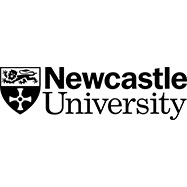Higher Education Innovation Fund 4 (HEIF4) outcomes
17 December 2007
Director General of The Russell Group, Dr Wendy Piatt, said:
"The results of HEIF 4 demonstrate the success of Russell Group universities in interacting with industry - including SMEs - on an unprecedented scale. All of the English Russell Group universities reached the absolute or relative cap on funding for HEIF due to the intensity of high-quality knowledge transfer activity they have undertaken - a clear indication of the importance of this work in our research-intensive universities which are, in fact, not just world-class but also business-facing.
"The Russell Group greatly welcomes the overall increase in HEIF funding available. However, we would question the use of an absolute cap on institutions that are excelling in this area - at least a cap at a level which almost all our institutions exceed. In an area of such key strategic importance to the growth of the UK economy, it is essential that excellence is fully rewarded and incentivised.”
Russell Group institutions comprised only 12% of all the HEIs surveyed, but:
- 79% of HEIs whose contract research with SMEs was worth over £1M in 2003-4 were Russell Group institutions.
- 65% of HEIs whose contract research with non-SME commercial businesses in 2003-4 was worth over £3M were Russell Group institutions.
- 85% of HEIs whose contract research with non-SME commercial businesses in 2003-4 was worth over £5M were Russell Group institutions.
- 60% of HEIs who had set up three or more business spin-offs with some HEI ownership in 2003-4 were Russell Group institutions.
* The 2006 Higher Education Business and Community Interaction (HE-BCI) Survey demonstrates high levels of business interaction by research-intensive universities across a wide range of indicators.
Notes to Editors
- All but one of the English RG universities will be affected by the absolute cap of £1.9 million in 2010-11.
- The absolute cap has increased from £1.5 million in 2007-08 to £1.9 million in 2010-11.
- Whilst RG universities will all experience an increase in HEIF funding, the proportion of total HEIF funding going to these research-intensive universities to facilitate increased activity in knowledge transfer has been reduced from just over 26% in 2007-08 to just under 20% in 2010-11.
-
Hamir Patel
hamir.patel@russellgroup.ac.uk
020 3816 1316
-
Stephanie Smith
020 3816 1310
 X
X

